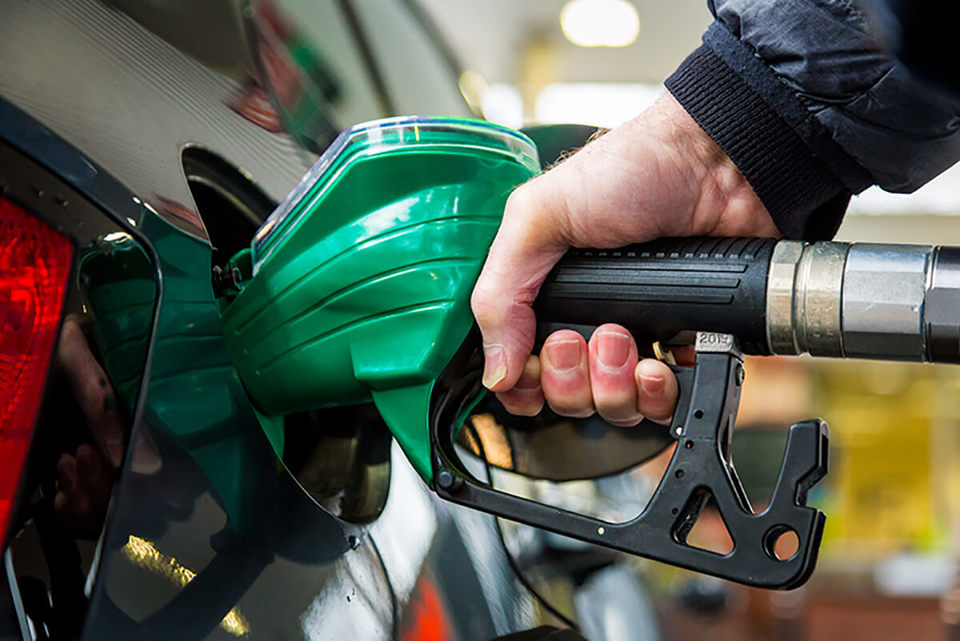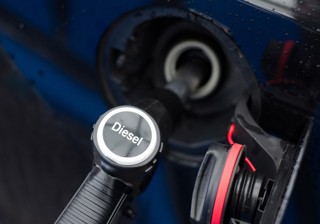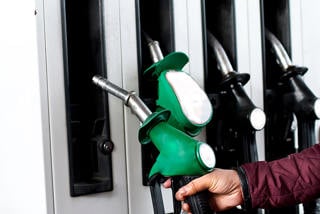New data from the RAC shows that both diesel and petrol prices increased during July as the pound lost 3% on the dollar.
Diesel went up by a penny (0.93p) to 131.95p per litre in July, after having fallen by 4.6p to 130.90p during June.
Meanwhile, the average price of petrol increased by 1.55p during the month taking a litre to 129.21p (in June petrol fell 3p a litre to 127.62p).
The RAC says that this means a tank of petrol now sets drivers back £71.07 compared to £70.21 at the end of June. For diesel the difference is just 51p with a complete fill-up increasing to £72.57.
At the four big supermarkets the fuel price rise was steeper with 1.88p being added to petrol, taking their average price to 125.95p. Diesel went up 1.64p, making a litre cost 128.62p.
Wholesale prices rose as a result of oil enduring a mid-month boost, hitting a high of $67.41 on July 10, but falling away to $63.97 by the close.
The other oil price-defining factor – the strength of sterling – took a dip following the change of Prime Minister, with the pound dropping 3% from $1.26 at the start of July to $1.22 by the close.
In fact, the pound reached its lowest level against the dollar ($1.2152 on July 30) since March 2017 ($1.2151 on March 9, 2017).
RAC fuel spokesman Simon Williams said: “Sadly, July saw a return to rising pump prices making the respite of June all too brief.
“While there were only relatively small rises in both petrol and diesel, the situation might have been far worse if the drop in the value of the pound had combined with the higher mid-month oil prices. And, of course this could still very easily prove to be the case if the pound doesn’t recover in the next few weeks.”
The price of a barrel of oil has been fluctuating between $60 and $70 since the end of May as traders can’t seem to be able to get a clear understanding of what’s happening with global demand, according to Williams.
“On the one hand there is talk of an economic slowdown in China and, on the other, concerns about supply due to the tanker hijacking issues in the Strait of Hormuz through which a third of the world’s sea-borne oil supply is shipped,” he said.
“Drivers can only hope we don’t see the nasty combination of a rising oil price and a falling pound. If we do, August could prove to be a very costly month on the UK’s roads. This could easily lead to petrol going above the 2019 high of 130.67p seen at the start of June and diesel exceeding the year’s high point of 135.54p at the end of May.”
Average fuel price milestones
|
Unleaded |
Date |
Price |
|
End of July |
31/07/2019 |
129.21 |
|
2019 high |
03/06/2019 |
130.67 |
|
Highest since 2014 |
15/10/2018 |
131.58 |
|
Previous highest price |
15/07/2014 |
131.61 |
|
All-time high |
16/04/2012 |
142.48 |
|
|
|
|
|
Diesel |
Date |
Price |
|
End of July |
31/07/2019 |
131.95 |
|
2019 high |
30/05/2019 |
135.54 |
|
Highest since 2014 |
30/10/2018 |
136.94 |
|
Previous highest price |
10/03/2014 |
137.17 |
|
All-time high |
12/04/2012 |
147.93 |






















Login to comment
Comments
No comments have been made yet.